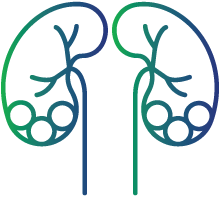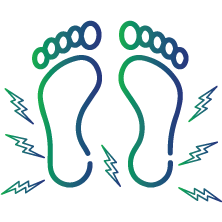
Calcium Test
About Calcium test
A calcium test measures the level of calcium in your blood. Calcium is one of the most essential nutrients, which is important for healthy bones and teeth. Low or high levels of blood calcium in your body could be an indication of several diseases, including the formation of kidney stones, thyroid disease, bone disease, and other conditions. Healthcare providers use this test to screen the level of calcium in your blood and detect any related diseases.
A calcium test is also known as
Total calcium, ionized calcium test
What is a Calcium test used for?
A calcium test is used to determine

Kidney diseases, like stone formation

Diseases of thyroid

Parathyroid disease

Malnutrition

Intestinal diseases (which affect calcium absorption)

Certain types of cancers

Bone diseases

Neurologic disorders
Who should get tested? A Calcium test is recommended to be performed frequently for individuals at increased risk of deficiencies and who are experiencing symptoms of calcium deficiency. Symptoms of calcium deficiency include

Muscle cramps

Dry skin

Brittle nails

Irritability or restlessness

Depression

Tingling in your fingers

Difficult to breathe

Stiffness of muscles (tetany)

Irregular heartbeat
Test Preparation
No special preparation or fasting is required for this test. Some medications might affect your test results, so make sure that your healthcare provider is aware of your medical history.
Interpretation of the results
Range of calcium levels
|
Result in mg/mL |
Interpretation of values |
|
<8.5 mg/dL |
Deficient |
|
8.5 to 10.2 mg/dL |
Normal |
|
>10.2 mg/dL |
Excess(toxicity) |
Deviation from normal levels indicates the following:
· Calcium test is used by healthcare providers to help diagnose and monitor various causes of bone diseases and the risk of various metabolic diseases like kidney and thyroid diseases.
· Higher-than-normal levels of calcium may be due to underlying conditions like:
o Overactive parathyroid glands (hyperparathyroidism)
o Certain types of bone cancer
o Bone disorders like Paget's disease
o Intake of excess vitamin D supplements
· Excess levels of calcium can cause serious damage to your organs and blood vessels. If you take calcium supplements, ask your provider what dose is right for you.
· Lower-than-normal levels of calcium may be due to underlying conditions like:
o Low levels of blood protein
o Underactive parathyroid glands (hypoparathyroidism)
o Low calcium intake in your diet
o Low amounts of vitamin D or magnesium
o Pancreatitis
Kidney disease
FAQs
What is calcium, and why does our body need it?
Calcium is a macronutrient that is essential for the normal functioning of bones and other hard tissues in the body. It plays a major role in the formation of blood clotting factors. Since calcium maintains vitamin D and phosphorous levels in our bodies, it is an essential nutrient for good bone, muscle, and tooth health.
What is the significance of the calcium test?
Calcium test helps in the diagnosis, monitoring, and screening of diseases of the bone, thyroid, kidney, and intestine. It also helps in the early prediction of kidney stone formation and in examining how well the heart, muscles, and nerves are functioning.
What are the risks associated with the Calcium test?
There are no known risks. During a blood test, one may experience minor pain or bruising where the needle was inserted, but most symptoms will subside quickly.
What happens during the Calcium test?
During this blood test, a healthcare professional will take a small amount of blood from a vein in your arm, using a small needle, which is the collected in a test tube or vial. This usually completes within a few minutes.
How long should I wait for my calcium test results?
The calcium test results are available within 2-3 working days. Test results might be mailed or made available online through health portals. Your doctor might also contact you by phone or email to go over your test findings or to arrange a follow-up appointment.

